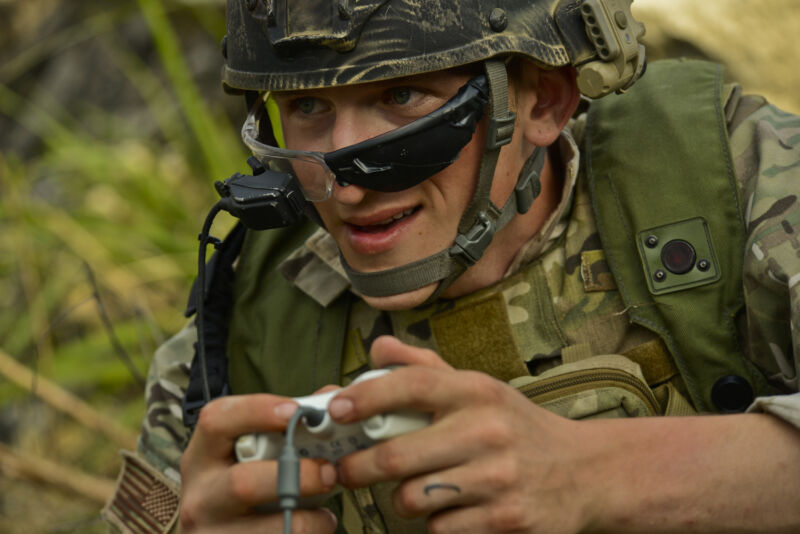Beyond missing Titanic sub, handheld gamepads are a common military interface

Enlarge / Senior Airman Ryan Hoagland operates an explosive ordnance disposal robot using an Xbox 360 controller. (credit: US Air Force / Flickr)
This weekend's tragic disappearance of an OceanGate Expeditions tourist submersible has led to a fair share of bemused coverage focused on the company's apparent use of a $30 Logitech F710 wireless PC game controller for its interface. But OceanGate is far from the first outfit to use off-the-shelf or slightly modified gaming control hardware to power expensive heavy machinery well outside of the gaming realm.
MRI analysis firm BodyViz, for instance, told the BBC that an Xbox controller provided a much more intuitive way to rotate, pan, zoom or fly-througha patient's virtual anatomy" than the previously standard mouse-and-keyboard interface. And NASA has used an Xbox Kinect as an interface to control complex rovers like the six-limbed ATHLETE (All-Terrain Hex-Limbed Extra-Terrestrial Explorer).
But international militaries have shown some of the most avid and continued interest in adapting game-control interfaces for decidedly non-entertainment uses. In 2014, the US Navy was promoting its use of "a video game-like controller" in a laser weapon prototype, for example. And in 2018, the USS Colorado attack submarine was handing Navy sailors an Xbox controller to operate its periscope-like photonic masts.